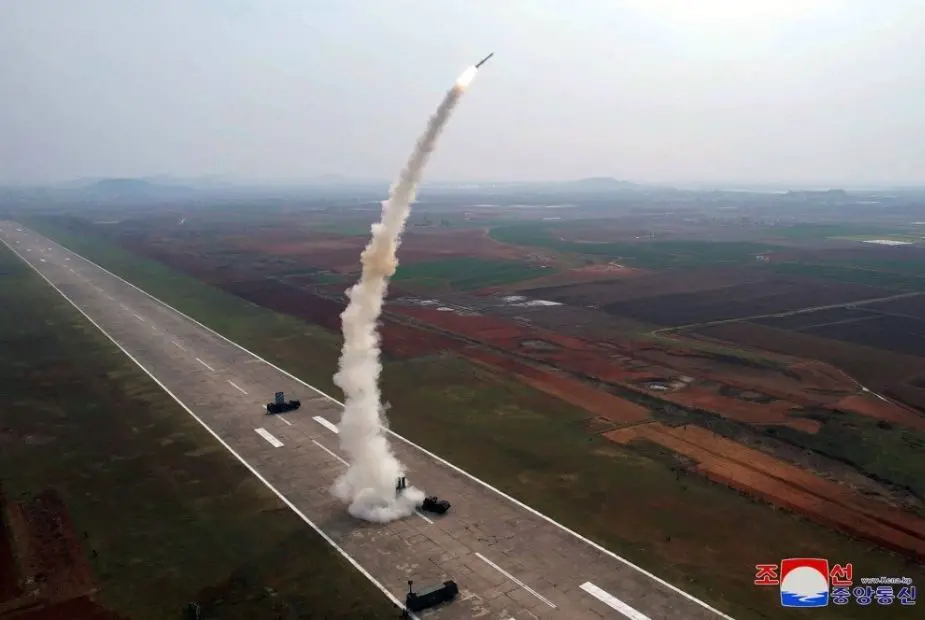North Korea Conducts Tests on Strategic Cruise Missiles and Anti-Aircraft Missiles
On April 19, 2024, North Korea conducted new tests of its strategic cruise missile equipped with a "super-large" warhead and a new anti-aircraft missile on the coastal regions of the Korea Sea. These tests, which are part of Pyongyang's ongoing efforts to support its military capabilities, involved the Hwasal-1 Ra-3 strategic cruise missile and the Pyoljji-1-2 anti-aircraft missile, both believed to be capable of carrying nuclear warheads.
Follow Army Recognition on Google News at this link

A photo published by the North Korean news agency, KCNA shows the launch of the Hwasal-1 Ra-3 strategic cruise missile from its launcher vehicle at a site in North Korea (Picture source: KNCA)
The North Korean news agency, KCNA, reported on April 20, 2024, that the tests were successful, achieving unspecified objectives. These tests were conducted from a launcher truck on a runway, although the precise location was not detailed. This series of missile tests, the fourth public test known since January 2024, marks an apparent acceleration in Pyongyang's weapons development timeline, with missile tests occurring more frequently than in previous years.
The South Korean military, closely monitoring the situation, has noted an increase in North Korean provocations and has strengthened its joint defense posture with allies the United States and Japan in response. The increased frequency of missile tests—from once every six months to potentially monthly or more often—indicates a significant ramp-up in Pyongyang's arms development.
This year alone, Pyongyang has conducted six cruise missile test launches, some of which have demonstrated ranges up to 4,000 kilometers, potentially putting U.S. military bases in Guam within striking distance. These developments occur amid heightened tensions on the Korean Peninsula following North Korea's decision to close avenues for reconciliation with South Korea and to designate South Korea as its primary enemy officially.
The missile tests also follow a significant diplomatic visit by US Ambassador to the UN, Linda Thomas-Greenfield, to South Korea and Japan. The visit was aimed at exploring alternative strategies after the UN Security Council failed to extend the mandate of the panel tasked with monitoring the enforcement of sanctions against North Korea's missile and nuclear programs. North Korea's growing arsenal now includes a variety of missile systems designed to penetrate regional missile defenses, such as cruise missiles and a vast array of ballistic missiles, including those capable of reaching the U.S. mainland.
Experts suggest that North Korea's advancements in anti-aircraft missile technology could be bolstered by increased military cooperation with Russia. This partnership arises as both nations face escalating conflicts with the United States. Additionally, the United States and South Korea have accused North Korea of supplying artillery shells and other military support to Russia, which could potentially enhance its military capabilities in the ongoing conflict in Ukraine.
Defense News April 2024
- Hits: 1496
















